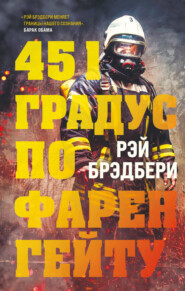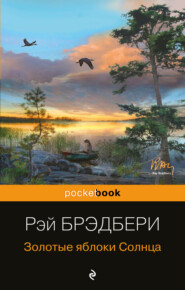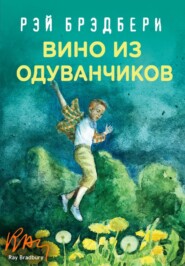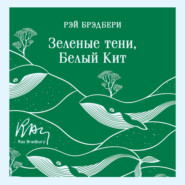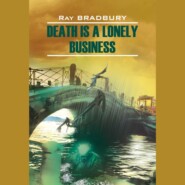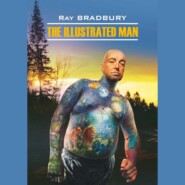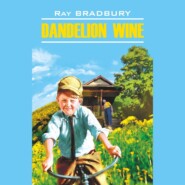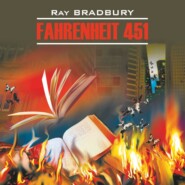По всем вопросам обращайтесь на: info@litportal.ru
(©) 2003-2025.
✖
Long After Midnight
Автор
Год написания книги
2018
Настройки чтения
Размер шрифта
Высота строк
Поля
“To have the inside track just in case He ever did arrive again?” suggested the Rabbi, kindly.
The young Priest grinned and nodded. The others felt the urge to reach and touch him, for he had touched some vague small sweet nerve in each. They felt immensely gentle.
“With your permission, Rabbi, gentlemen,” said Bishop Kelly, raising his glass. “To the First Coming of the Messiah, or the Second Coming of Christ. May they be more than some ancient, some foolish dreams.”
They drank and were quiet.
The Bishop blew his nose and wiped his eyes.
The rest of the evening was like many another for the Priests, the Reverends, and the Rabbi. They fell to playing cards and arguing St. Thomas Aquinas, but failed under the onslaught of Rabbi Nittler’s educated logic. They named him Jesuit, drank nightcaps, and listened to the late radio news:
“—it is feared this Martian may feel trapped in our community. Anyone meeting him should turn away, so as to let the Martian pass. Curiosity seems his motive. No cause for alarm. That concludes our—”
While heading for the door, the Priests, Ministers, and Rabbi discussed translations they had made into various tongues from Old and New Testaments. It was then that young Father Niven surprised them:
“Did you know I was once asked to write a screenplay on the Gospels? They needed an ending for their film!”
“Surely,” protested the Bishop, “there’s only one ending to Christ’s life?”
“But, Your Holiness, the Four Gospels tell it with four variations. I compared. I grew excited. Why? Because I rediscovered something I had almost forgotten. The Last Supper isn’t really the Last Supper!”
“Dear me, what is it then?”
“Why, Your Holiness, the first of several, sir. The first of several! After the Crucifixion and Burial of Christ, did not Simon-called-Peter, with the Disciples, fish the Sea of Galilee?”
“They did.”
“And their nets were filled with a miracle of fish?”
“They were.”
“And seeing on the shore of Galilee a pale light, did they not land and approach what seemed a bed of white-hot coals on which fresh-caught fish were baking?”
“Yes, ah, yes,” said the Reverend Smith.
“And there beyond the glow of the soft charcoal fire, did they not sense a Spirit Presence and call out to it?”
“They did.”
“Getting no answer, did not Simon-called-Peter whisper again, ‘Who is there?’ And the unrecognized Ghost upon the shore of Galilee put out its hand into the firelight, and in the palm of that hand, did they not see the mark where the nail had gone in, the stigmata that would never heal?
“They would have fled, but the Ghost spoke and said, ‘Take of these fish and feed thy brethren.’ And Simon-called-Peter took the fish that baked upon the white-hot coals and fed the Disciples. And Christ’s frail Ghost then said, ‘Take of my word and tell it among the nations of all the world and preach therein forgiveness of sin.’
“And then Christ left them. And, in my screenplay, I had Him walk along the shore of Galilee toward the horizon. And when anyone walks toward the horizon, he seems to ascend, yes? For all land rises at a distance. And He walked on along the shore until He was just a small mote, far away. And then they could see Him no more.
“And as the sun rose upon the ancient world, all His thousand footprints that lay along the shore blew away in the dawn winds and were as nothing.
“And the Disciples left the ashes of that bed of coals to scatter in sparks, and with the taste of Real and Final and True Last Supper upon their mouths, went away. And in my screenplay, I had my CAMERA drift high above to watch the Disciples move some north, some south, some to the east, to tell the world what Needed to Be Told about One Man. And their footprints, circling in all directions, like the spokes of an immense wheel, blew away out of the sand in the winds of morn. And it was a new day. THE END.”
The young Priest stood in the center of his friends, cheeks fired with color, eyes shut. Suddenly he opened his eyes, as if remembering where he was:
“Sorry.”
“For what?” cried the Bishop, brushing his eyelids with the back of his hand, blinking rapidly. “For making me weep twice in one night? What, self-conscious in the presence of your own love for Christ? Why, you have given the Word back to me, me! who has known the Word for what seems a thousand years! You have freshened my soul, oh good young man with the heart of a boy. The eating of fish on Galilee’s shore is the True Last Supper. Bravo. You deserve to meet Him. The Second Coming, it’s only fair, must be for you!”
“I am unworthy!” said Father Niven.
“So are we all! But if a trade of souls were possible, I’d loan mine out on this instant to borrow yours fresh from the laundry. Another toast, gentlemen? To Father Niven! And then, good night, it’s late, good night.”
The toast was drunk and all departed; the Rabbi and the Ministers down the hill to their holy places, leaving the Priests to stand a last moment at their door looking out at Mars, this strange world, and a cold wind blowing.
Midnight came and then one and two, and at three in the cold deep morning of Mars, Father Niven stirred. Candles flickered in soft whispers. Leaves fluttered against his window.
Suddenly he sat up in bed, half-startled by a dream of mobcries and pursuits. He listened.
Far away, below, he heard the shutting of an outside door.
Throwing on a robe, Father Niven went down the dim rectory stairs and through the church where a dozen candles here or there kept their own pools of light.
He made the rounds of all the doors, thinking: Silly, why lock churches? What is there to steal? But still he prowled the sleeping night …
… and found the front door of the church unlocked, and softly being pushed in by the wind.
Shivering, he shut the door.
Soft running footsteps.
He spun about.
The church lay empty. The candle flames leaned now this way, now that in their shrines. There was only the ancient smell of wax and incense burning, stuffs left over from all the marketplaces of time and history; other suns, and other noons.
In the midst of glancing at the crucifix above the main altar, he froze.
There was a sound of a single drop of water falling in the night.
Slowly he turned to look at the baptistery in the back of the church.
There were no candles there, yet—
A pale light shone from that small recess where stood the baptismal font.
“Bishop Kelly?” he called, softly.
Walking slowly up the aisle, he grew very cold, and stopped because—
Another drop of water had fallen, hit, dissolved away.
It was like a faucet dripping somewhere. But there were no faucets. Only the baptismal font itself, into which, drop by drop, a slow liquid was falling, with three heartbeats between each sound.






